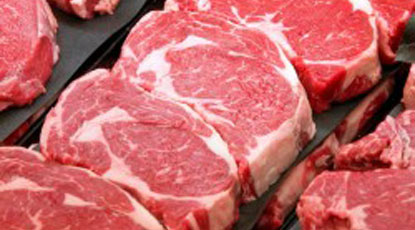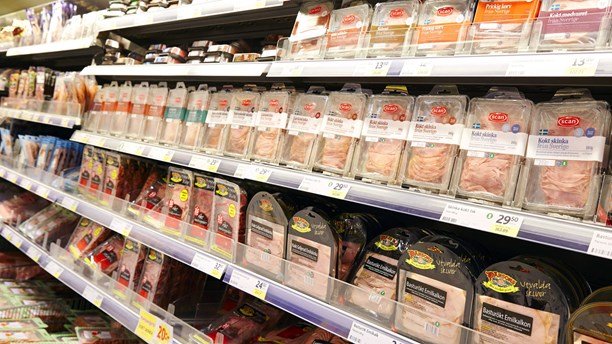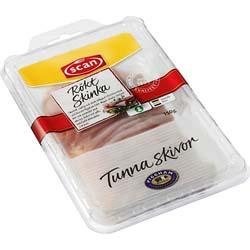Too much meat
Substitute meat with beans, peas and vegetables say new guidelines from the National Food Agency of Sweden.
-
 The National Swedish Food Agency’s new guidelines say to limit your consumption of red meat and cold cuts because of the link with cancer. Swedes eat too much meat today.
The National Swedish Food Agency’s new guidelines say to limit your consumption of red meat and cold cuts because of the link with cancer. Swedes eat too much meat today. -
-
Swedes consume oo much meat
Only half a kilo a week of red meat and cold cuts. Those are the new guidelines from the National Food Agency of Sweden (Livsmedelsrådet). Most Swedes eat far more meat than that. (Compare with our consumption of red meat in the U.S., which in 2013 came close to double that number per week and capita.) -
 Cold cuts ought to be the smaller part of the weekly ration, as it increases the risk of cancer more than the same amount of pure meat.
Cold cuts ought to be the smaller part of the weekly ration, as it increases the risk of cancer more than the same amount of pure meat. -
-
“We consume a lot of red meat and cold cuts, 72 percent of the men and 42 percent of the women eat more than 500 gram a week,” says Rickard Bjerselius, toxicologist at Livsmedelsverket (compared with Americans' consumption of red meat, which in 2013 came close to double the number per week and capita).
The basis for the new guidelines rests on research from the World Cancer Research Fund, where a report built on studies with a total of nearly three million participants clearly shows links between meat consumption and the risk of cancer.
“If you have a weekly consumption of these products that is above 500 grams, then the risk for colorectal cancer increases,” Bjerselius says. Red meat means beef, pork and lamb. In cooked weight, half a kilo equals about three normal-sized portions a week and a bit of sandwich meat on top, according to Livsmedelsverket. The cold cuts ought to be the smaller part of the weekly ration, as it increases the risk of cancer more than the same amount of pure meat.
Bjerselius’ advice is to substitute the meat with beans, peas and vegetables. “Of course you can also substitute it with fish or poultry, but from a health point of view, the best thing is to substitute with vegetables.” The money saved can thus be spent on meat that’s been produced in a sustainable manner and from producers who pay attention to the welfare of the animals. “If you make a conscious choice you can think about your own health, the environment we have in common, animal welfare and also about decreasing and limiting the use of antibiotics in meat and thereby the multi-resistant bacteria.”
Alicja Wolk is a professor of nutritional epidemiology at the Karolinska Institute, and she says the new advice is in line with existing cancer research. She thinks the advice is good and straightforward. “What I understand in my contact with people is that many want concrete advice, so they understand what (the advice really) means. Otherwise, we interpret it differently.”
Exactly why the risk for cancer increases is not fully understood, but there is a connection. Cancer is not the only disease connected to meat consumption, however. Wolk and her colleagues recently published a study in which it was shown that processed meat, such as sausage, bacon and ham, increase the risk for heart failure. “Certain products contain a lot of salt, and hypertension is one of the most important reasons for heart failure,” Wolk says. -
 The recommendation is, use the thinly sliced, "tunna skivor" when it comes to cold cuts.
The recommendation is, use the thinly sliced, "tunna skivor" when it comes to cold cuts. -
-
